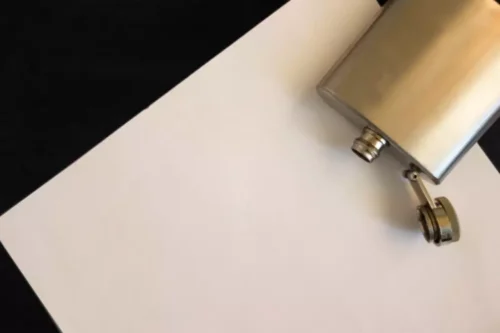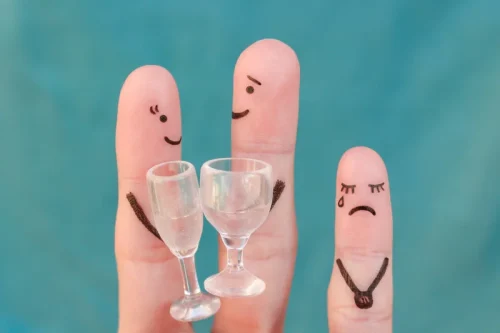
Your deep restful sleep tends to be more prevalent in the first few hours but decreases during the second half. Sure, that nightcap, last glass of wine or beer before bed may help you feel sleepy. But it can actually end up robbing you of a good night’s rest — or worse, could cause some challenging sleep problems.

What you can do if your sleep is impacted

When she quit drinking in 2019, she dedicated herself to learning about alcohol’s influence on the brain and how it can cause addiction. Today, she educates and empowers others to assess their relationship with alcohol. Gill is the owner of the Sober Powered Media Podcast Network, which is the first network of top sober podcasts.
Your Body Starts to Detox
After half a year without drinking, you will really start to reap the rewards. Your risk of developing cancer will decrease, and your liver function will have greatly improved. When you stop drinking, various things happen to your mind and body. However, the nature and intensity of these effects can vary depending on how much and how frequently you https://ecosoberhouse.com/ drink. While occasional social drinking may not result in significant changes when you decide to quit, you may experience more significant effects if you have been drinking heavily for an extended time. However, many factors, such as a person’s sex, medication use, and health, can affect intoxication and cause BAC to rise quicker and fall slower.

Your Risk of Certain Diseases Will Decrease
Your daily habits and environment can significantly impact the quality of your sleep. Answer three questions to understand if it’s a concern you should worry about. If you sleep better when you don’t drink, you might consider stopping alcohol use entirely. However, if you continue to have sleeping difficulties, reach out to a sleep specialist.
The Human Sleep Cycles

Sleep aids that you can buy without a prescription rarely offer effective or long-term help for this problem. If you feel your drinking has become more than a habit and has started to impact your family, job, or health, SAMHSA’s National Helpline provides free, confidential, and immediate support. They can help you find a local treatment center or provider to get the care you need. To avoid these feelings, you may feel the need to keep drinking more to delay the unpleasant side effects. While drinking can increase your feelings of relaxation, these consistent side effects can have serious implications for your mental and physical well-being. There are many medications used to treat insomnia, including benzodiazepine and nonbenzodiazepine medications.
- Stopping the use of alcohol because it is causing problems in your life takes courage and commitment.
- Try to find activities and processes to include in a routine that are a balance between being interesting and enjoyable, so that you will look forward to them, but not too stimulating.
- If you’re struggling to incorporate different relaxation techniques into your routine instead of alcohol, consider joining a support group.
For some, natural sleep aids such as melatonin supplements, valerian root, or chamomile tea can be helpful. These should be used responsibly and ideally, under the guidance of a healthcare provider. Manage your stress through techniques such as yoga, meditation, or cognitive behavioral therapy. These practices can how to sleep without alcohol help quiet your mind and make it easier to fall asleep naturally. Caffeine and nicotine are stimulants that can interfere with your ability to fall asleep. Avoid consuming these substances in the evening—ideally, limit caffeine after lunch and quit smoking or reduce nicotine use, particularly later in the day.
Does Stopping Alcohol Consumption Cause Insomnia
- Insomnia itself can be a symptom of withdrawal and sleep disturbances during early recovery are linked to relapse.
- Even moderate amounts of alcohol in your system at bedtime alters sleep architecture—the natural flow of sleep through different stages.
- So while cutting out drinking will likely benefit your sleep, there may be other factors affecting your shuteye.
In cases of excessive, long-term alcohol use, more severe symptoms such as confusion, and convulsions may occur. Delirium tremens is the most severe form of alcohol withdrawal and occur in a small percentage of individuals. Once your body has built up a physical dependence upon alcohol, called tolerance, and alcohol use stops, withdrawal symptoms will occur. Symptoms can range from mild to severe, and frequently include insomnia and other sleep disruptions. You’ll be more likely to fall asleep fast if you avoid stimulation before bed. Stay away from caffeine, other medication, screen time, sugary foods, stressful activities, and of course, alcohol.
You may also experience parasomnias which are disruptive sleep disorders that occur in specific stages of sleep or in sleep-wake transitions. These can happen during arousals from rapid eye movement (REM) sleep or non-rapid eye movement (NREM) sleep. Vivid dreams and nightmares — With alcohol in your system you’re more likely to have intense, colorful dreams and nightmares as you sleep patterns ebb and flow. You may or may not remember them, but they can be lucid or give you a feeling that you are half awake and half asleep. The good news for individuals who want to quit drinking is that there are a number of alcohol-free methods to help you fall asleep.
This disruption can result in a decrease in sleep efficiency and an increase in sleep-related problems. Research also suggests that alcohol-induced sleep disorders may include sleep apnea and potentially contribute to sleepwalking. However, there is no direct evidence that alcohol causes narcolepsy. Before we look at the effects of alcohol on sleep in detail, here’s the basic bottom line. The more you drink, and the closer your drinking is to bedtime, the more it will negatively impact your sleep. Even moderate amounts of alcohol in your system at bedtime alters sleep architecture—the natural flow of sleep through different stages.
- Using either substance can contribute to insomnia, especially when you use it closer to bedtime.
- One study showed that after 6 weeks of abstinence from alcohol, brain volume increases by an average of 2%.
- This may be more pronounced if you often use alcohol as a way to manage existing sleep problems.
- If you’ve stopped drinking alcohol, but are still having sleep issues, be sure to reach out to a sleep specialist.
- Research shows alcohol can impact your sleep even if you stop drinking six hours before bed.
